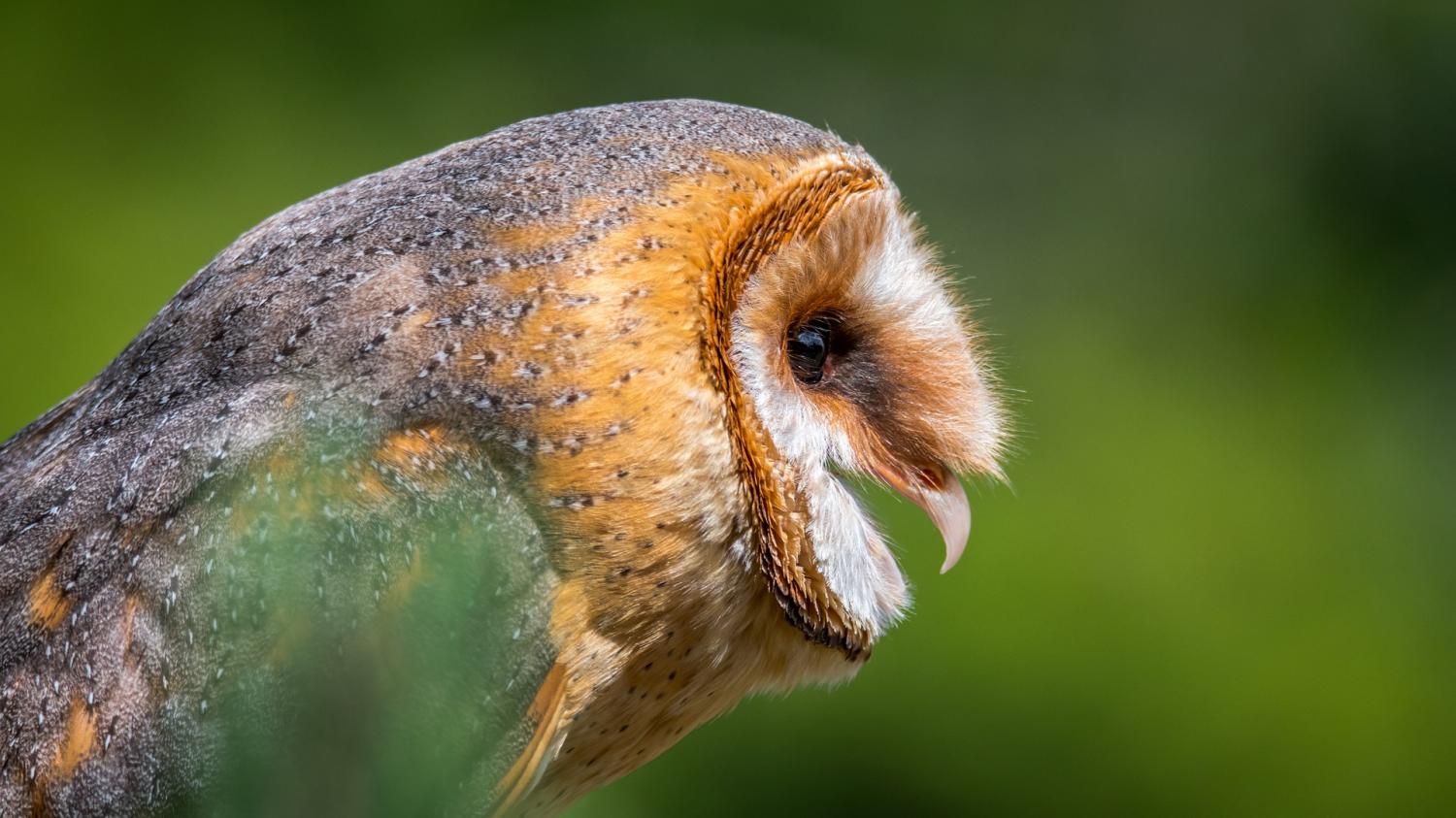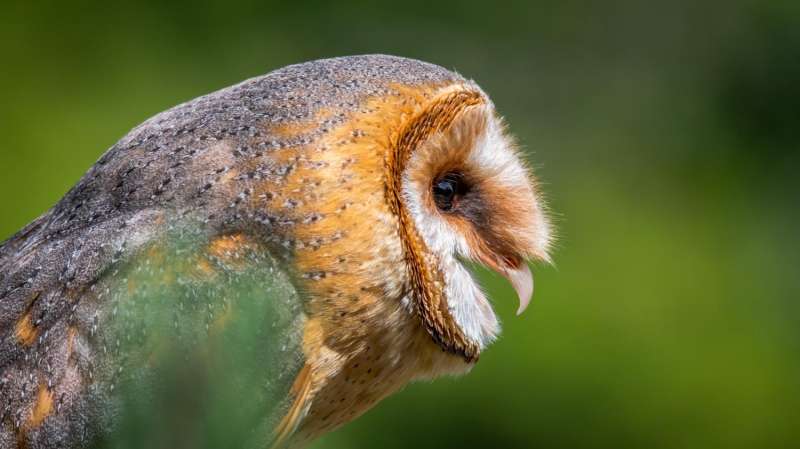

A Johns Hopkins University researcher can continue medical experiments on barn owls after a lengthy battle with the People for the Ethical Treatment of Animals over animal cruelty and permit complaints.
The Maryland Department of Natural Resources last month issued Hopkins a new permit to conduct what PETA calls “cruel” and “worthless” experiments on barn owls.
The animal rights group has campaigned for years to end the experiments, saying researchers cut into the owls’ skulls, implant electrodes in their brains and run sensory tests before killing the birds.
Hopkins has been staunch in its support for associate professor Shreesh Mysore’s research, which focuses on deconstructing neural circuits in the brain and understanding how they shape behavior.
The study could yield critical insight into medical conditions, including ADHD, autism and schizophrenia so that scientists can develop better interventions and treatments, the university says.
Experimenters place electrodes into the brains of barn owls. They then conduct sensory tests on the birds and record what the brain does as the owls react to their environment. The owls are restrained during the tests.
While the implanted electrodes do not hurt or damage the birds, the owls are ultimately euthanized, said Eric Hutchinson, director of Research Animal Resources, which oversees animal care at JHU.
“Unfortunately, for neuroscience research, when you’re studying the brain, the tissue you need at the end of the experiment is the brain,” Hutchinson said. “There’s no way to collect that tissue in a way that would preserve the life of the animal. And so, in order to collect that tissue, the animals undergo humane euthanasia prior to collection.”
Mysore’s research appeared on PETA’s radar in 2018 when NPR published an article about his work with barn owls.
Initially, PETA tried to convince Hopkins that its experiments were brutal to the birds and that there were better methods.
“Looking at brain activity in barn owls with invasive procedures in the brain doesn’t give any insight into human attention deficit disorder because of the inapplicable differences across species,” Shalin Gala, PETA’s vice president of international laboratory methods, told The Baltimore Sun in 2020. “Superior, more relevant research methods can be used to scan people’s brains during certain tasks and with consent. That’s a better way to spare the animals and get the data we need.”
When that didn’t work, PETA shifted its focus to a permit needed for using animals in scientific experiments.
The group repeatedly contacted the DNR, which issues the permits, and the National Institutes of Health, which funds JHU’s owl research, to contest the legality of Hopkins’ testing practices.
Last month, PETA declared victory, though prematurely, after the DNR issued Hopkins a revised permit with language that prohibited Mysore from killing the owls.
Maryland state Sen. Benjamin F. Kramer soon after sent letters to Hopkins, the DNR and the NIH, calling on them to ensure that the experiments end permanently and to sanction the researcher.
The DNR had issued Hopkins a revised permit because PETA had filed complaints to the agency that Hopkins was killing the owls, which violated the conditions of the permit the university possessed.
The DNR issued a scientific collection permit to Mysore in 2014 that allows for the collection of wildlife for scientific or educational purposes but becomes void with proof that the permittee killed any wildlife.
When Hopkins first applied for a permit in 2014, the DNR issued Mysore “the most applicable permit that they had,” Hutchinson said. The agency knew—and Hopkins was clear during the application process—that Mysore was using captive birds, he said.
Mysore brought the barn owls from a research facility at Stanford University before setting up a breeding colony on campus. He should have never been issued that permit, Hutchinson said.
“When we were issued (the revised) permit, we of course, immediately put a stop on any euthanasia so that we would be in compliance with that new permit,” Hutchinson said. “Meanwhile, (we) contacted DNR, and we were working with DNR to basically say the statute—that this permit is issued under—is for collections, and, in fact, there’s an existing statute that he should have been issued a permit under that covers possession.”
The DNR on June 10 issued the university a “Permit to Possess Protected Species of Wild Birds.” This enabled Mysore to continue its owl research as before, which includes euthanizing the birds.
“The university has applied for and received a permit to possess barn owls for scientific purposes, which is the appropriate permit for their captive-bred animals,” Gregg Bortz, the DNR’S media relations manager, said last month. He noted that the agency is not the oversight body for this research.
Gala, who oversees PETA’s campaign against Hopkins’ owl experiments, says there is a troubling lack of oversight in the regulation of animal experimentation.
For example, PETA learned through a public records request that Mysore conducted his experiments from 2015 to 2018 even though his old permit had lapsed. The permits must be renewed annually.
“When we raised this issue with NIH, NIH actually blamed DNR, saying that was their fault for not reminding him. But then DNR, when we raised it with them, (said) that they did send a reminder to him and that Mysore is the one who didn’t renew,” Gala said. “So everyone is pointing fingers at everyone else, and no one’s taking responsibility.”
This back-and-forth between the agencies is indicative of a larger system breakdown, he said. Had PETA not repeatedly raised these concerns with each agency, it would presumably have been business as usual, he said.
Hopkins acknowledges that there was a lapse during those years. However, the stakeholders, including Hopkins, the NIH and the DNR, reviewed how that happened and “concluded that it was essentially a clerical error,” Hutchinson said.
Mysore’s work gets reviewed thoroughly every three years and annually on a cursory basis, Hutchinson said. The NIH also reviews Mysore’s research regularly to determine whether it’s worthy of funding, he added.
Emma Wojtowicz, public affairs specialist at NIH, said last month that the grant remains active. The agency has awarded more than $1.9 million to the project. The NIH is the final arbiter of Mysore’s research, Hutchinson said.
“Only 10% of NIH applications are funded,” Hutchinson said. “And so the fact that he’s getting funded for this means that his peers and the NIH believe that what he’s doing is important.”
Owls help scientists unlock secret of how the brain pays attention
2022 The Baltimore Sun.
Distributed by Tribune Content Agency, LLC.
Citation:
University can continue barn owl testing after permit battle with PETA (2022, July 12)
retrieved 12 July 2022
from https://phys.org/news/2022-07-university-barn-owl-peta.html
This document is subject to copyright. Apart from any fair dealing for the purpose of private study or research, no
part may be reproduced without the written permission. The content is provided for information purposes only.